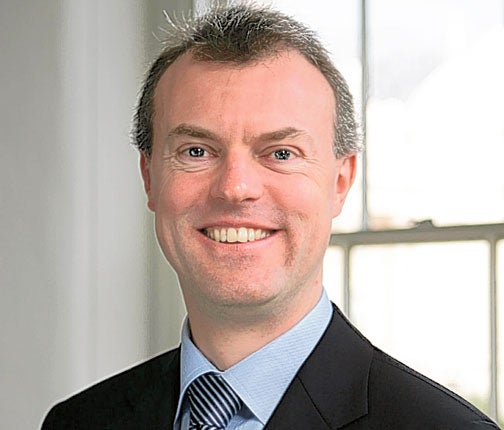Profile: Professor Zeger Degraeve
‘Good rankings follow from the strategy adopted to expand students’ futures’. By Widget Finn

“Business schools are big ships to turn,” comments Professor Zeger Degraeve.
“Often it is a dean’s successor who will enjoy the realisation of his or her long-term strategy.” Professor Degraeve, who will take up his initial four-year term as dean of Australia’s Melbourne Business School (MBS) in September, is undaunted by the prospect that many benefits of his tenure will only mature after he has gone.
“My long-term strategies include fundraising, raising the profile of the school and ensuring that it achieves prominence on the global scene. Short-term I plan to re-think the MBA curriculum and develop the executive education programme.”
The Belgian-born professor will bring extensive academic experience in Europe and the US to his new role. After studying at the universities of Ghent and Leuven in Belgium, he gained his PhD from the Graduate School of Business at the University of Chicago. In 1999, he joined London Business School (LBS) serving as associate dean of the executive MBA.
“My 12 years at LBS provided fantastic experience and opportunities for personal development, which fully prepared me for moving into the role of dean,” says Professor Degraeve. He sees his greatest achievement to date as establishing LBS’s new centre in Dubai, the school’s first centre overseas, where he was faculty director from 2007-09. In 2008, he was appointed the inaugural Sheikh Mohammed bin Rashid al Maktoum professor of innovation at LBS, in recognition of his work at the Dubai centre.
MBS is currently ranked second in Asia Pacific in the QS Global 200 Business School Report. Rankings are a controversial issue in the business school world, but Professor Degraeve acknowledges their importance.
“Having a good standing in the rankings helps our students with their future career aspirations, so the business school has the responsibility to do well. However, rankings never set the strategy of the school. I would hope that good standing in the rankings follows from the strategies adopted to expand the students’ future.”
The professor relishes the challenge of raising Melbourne’s profile. “There’s significant potential for advancement. Australia has an abundance of talent, knowledge, skills and financial resources. I can see no reason why it should not produce a world-class business school. Melbourne is best placed to be that pre-eminent school.”
But Professor Degraeve argues that pre-eminence, like charity, begins at home. “I’m convinced there is enormous international and global potential for MBS, but first it needs to be the leader in its own local market. One of my priorities is to establish the school’s local profile as a top quality business school, offering excellent teaching and services. Linked to this is the task of strengthening the school’s ties with the Australian community – particularly the business community.”
What are the challenges for an academic coming from a European business school culture?
Jill Klein, professor of marketing at MBS has faculty experience at Insead in Paris, and the Kellog in the US. She warns: “It takes time to build a network in the Melbourne and Australian business community, which is a tight group. You also have to put some extra effort into maintaining your networks elsewhere.” She explains that Melbourne’s geographical location offers a huge advantage. “We are uniquely positioned for access to the Asia- Pacific, and that’s something the US and Europe can’t offer.”
The prospective dean acknowledges that business schools are often criticised for failing to keep up with developments in our fast-moving business climate. “The complexity of business is changing all the time. Business schools need to prepare students to work effectively in these changing contexts. One of the main attractions of Melbourne was that it offered the flexibility to adjust and adapt to current market demands.”
The MBA is close to his heart, and one of his first activities has been to re-think the curriculum: “Even before taking the job, I asked faculty to review the MBAs, looking at the format and contents. Case studies build the experience of students quickly, but they are history – problems that have happened. We need to work with businesses on current problems so students can build knowledge of how to deal with the situations effectively.”
He also sees the need to include the softer interpersonal skills in the MBA programme. “Effective management means working through people with leadership and team-working.”
He admires the qualities for which Australia is famous.
“Australia doesn’t need a Belgian from London to raise awareness about its pioneering spirit. But I aim to unlock the talents, skills and energy to put MBS on the map,” he says.
Big ships aren’t always for turning, but Professor Degraeve aims to steer MBS on course towards global recognition.
Subscribe to Independent Premium to bookmark this article
Want to bookmark your favourite articles and stories to read or reference later? Start your Independent Premium subscription today.

Join our commenting forum
Join thought-provoking conversations, follow other Independent readers and see their replies